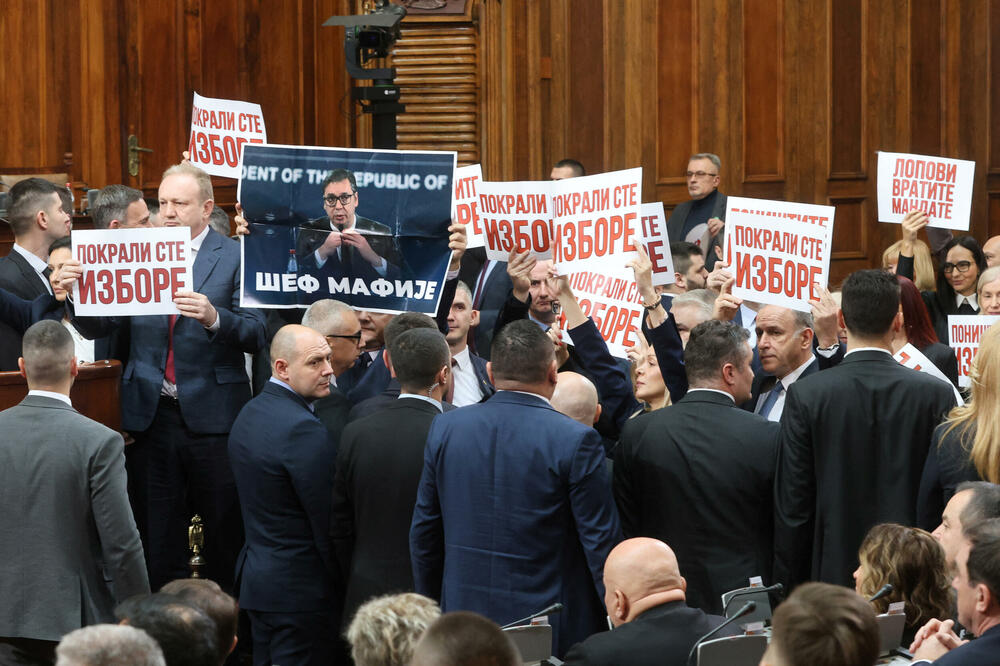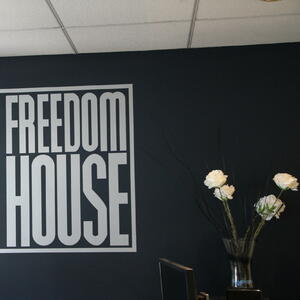According to this year's report of the Freedom House organization for the year 2023, Serbia's decline is the biggest decline in Europe as a whole, said today the expert of Freedom House for the Balkans, Aleksandra Karpi.
"So, not only in the Western Balkans and not only globally, but in Europe, she (Serbia) was the leader, unfortunately, in reducing the rights and civil liberties of citizens," she told the Voice of America (VoA). .
Freedoms in Serbia have been declining for ten consecutive years, so this year Serbia is in 114th place according to the list of Freedom House, an organization based in New York.
This year, Serbia fell by three points, which overall puts it in the top half of countries where democracy has been in constant decline over the last decade.
In the introduction of the report that refers to Serbia, it is stated that Serbia is a parliamentary democracy with competitive multi-party elections, but in recent years the ruling Serbian Progressive Party (SNS) has been constantly violating political rights and civil liberties, exerting pressure on independent media, political opposition and civil society organizations. society.
"In December, the SNS-led coalition won an absolute majority of seats in parliament after extraordinary parliamentary and local elections that were marked by credible reports of irregularities. After the elections, mass protests reappeared in Belgrade, where demonstrators condemned alleged fraud and manipulation and brought question the final results of the election," the report added. Freedom House stated that local and international observers reported numerous irregularities during the campaign and on election day.
"During the campaign, several factors led to an unequal electoral environment for candidates and provided undue advantages to SNS. These include disproportionately high media access afforded to governing parties, pressure on public sector employees and socio-economically disadvantaged residents to support incumbents , the abuse of administrative resources and the central role of President Vučić in the elections, which contributed to the blurring of the borders between the state and the SNS party," the report states.
On election day, the Organization for Security and Cooperation in Europe (OSCE) Office for Democratic Institutions and Human Rights (ODIHR) noted a number of issues, including procedural flaws in 39 percent of observations, vote buying, violations of voting secrecy and cases of group voting.
Electoral laws largely correspond to international standards, but aspects of the electoral process are poorly regulated, and the application of existing rules is deficient.
It adds that campaign finance regulations are poorly enforced and do not place an overall limit on private funds raised and spent by parties and candidates.
"The SNS used various tactics to unfairly diminish the opposition's electoral prospects. These include manipulating the timing of early elections, exerting pressure on independent state institutions, recruiting voters from neighboring countries, and mobilizing public resources to support campaigns," the report states.
Opposition figures have also faced increasing harassment, intimidation, manipulation and violence in recent years, resulting in suppression of political representation of opposition parties at all levels.
In the section on media freedom, it is stated that despite the legal framework guaranteeing freedom of the press, media freedom is violated by threats of lawsuits or criminal charges against journalists for other criminal acts, lack of transparency of media ownership, editorial pressure from politicians and politically connected media owners.
It is added that there are direct pressures and threats against journalists as well as a high rate of self-censorship.
The media environment is characterized by extreme propaganda and manipulation of facts around certain topics, including the relationship between the ruling parties and the opposition and the relationship between Kosovo and Serbia.
Debate is generally free and lively, but a pattern of retaliation against senior government critics has contributed to an increasingly hostile environment for free expression and open debate.
Perceived opponents of the government, including journalists, university professors, civil society leaders, celebrities and ordinary citizens, have faced smear campaigns in pro-government media, criminal investigations and other reprisals in recent years, the report said, adding that top government officials regularly participate in discrediting non-political figures based on their public criticism of government policy.
In its section on the judiciary, Freedom House stated that the independence of the judiciary is threatened by political influence on judicial appointments, and many judges have reported facing external pressure regarding their decisions.
Karpi said that the elections in Serbia are "part of the story" about the decline in the ranking.
"We saw a decline in that category due to stolen elections and the possibility that they influenced the results in key election races like Belgrade. But really, keep in mind that the cost of such manipulations is that the ability of citizens to express their problems and participate in democratic processes. And that was one of the reasons for the decline, but Serbia lost a total of three points, which is quite significant," she said.
According to her, some of the other factors include declining transparency over the past few years.
"The public is increasingly unable to access information on procurement, infrastructure projects and other economic development policies," she said, adding that the third factor in Serbia's decline is the decline in the indicator of private debates, which was the result of the brutal disparagement of opposition politicians and other critics. regime, revelations about surveillance of opposition figures.
Karpi said that "now there is a real fear that there will be some kind of retaliation, if there is a strong opposition to this government."
Bonus video:





